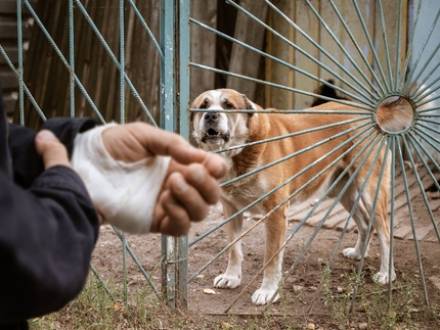Are Untrained Dogs More Likely To Attack and Bite?
 It is said that dogs are man’s best friends. That may be true in most cases, but dog attacks and bites happen far too often. Along with the potentially severe physical injuries, victims can also suffer from mental and psychological trauma. If you think about dog attacks, you may assume the dog is an aggressive breed or has been mistreated, but that is not always the case.
It is said that dogs are man’s best friends. That may be true in most cases, but dog attacks and bites happen far too often. Along with the potentially severe physical injuries, victims can also suffer from mental and psychological trauma. If you think about dog attacks, you may assume the dog is an aggressive breed or has been mistreated, but that is not always the case.
Training and socialization — or the lack thereof — affect a dog’s behaviors and responses. Even if dog owners are not financially able to have their pets trained professionally, there are still things they can do on their own to reduce the likelihood of attacks. If a dog bite injured you or your child, the skilled lawyers at Dog Bite Injury Lawyer - Mevorah Law Offices LLC can help you hold its owner accountable.
Why Do Dogs Attack or Bite?
Even a generally docile dog may attack in some situations, particularly when provoked. Several factors make bites more likely, such as:
-
Like people, a dog’s genetics means parental traits can be passed down.
-
Some breeds are more aggressive by nature.
-
When dogs are not socialized, they may feel threatened by new people or environments.
-
An overly aroused state may reduce the dog’s ability to make good decisions, causing them to react in unusual ways.
-
If a dog is untrained, its owner is unlikely to be able to control it and keep it from attacking.
-
When dogs feel that you are invading their territory, whether that is their home, their person, or even their space on the sidewalk, they may attack to protect their turf.
-
Illness, injury, and pain can cause dogs to be aggressive.
A recent study published by the National Library of Medicine reports that additional risk factors include the dog’s early environment, its age when the owner got it, and the litter’s sex ratio. Because a dog’s early experiences are formative, the owner’s knowledge, experience with dogs, training and reinforcement techniques, and consistency with expectations are also critical factors in a dog’s behaviors.
If you own or are thinking about getting a dog, at least basic socialization and training is vital. Most dogs are eager to please, and understanding what you expect of them consistently is essential.
What Injuries Do Dog Bites Cause?
The victim’s height and position, in addition to the dog’s stature, affect where a dog’s teeth land. Children are very vulnerable because the dog may bite their face and neck. Ankles and legs are common targets, and victims may also receive defensive wounds on their hands and arms. A dog’s bite can cause puncture wounds and tearing; dogs may even bite a chunk of flesh off the victim’s body. Claws are sometimes used as weapons, which can add scrapes and additional cuts.
These wounds may become infected, and the victim may get rabies or other transmittable diseases. However, the psychological trauma is often as severe as the physical wounds. The victim may need therapy and could have a lifelong fear of dogs.
At Dog Bite Injury Lawyer - Mevorah Law Offices LLC, we understand the many ways that a dog bite can affect you or your child. We will work diligently to see you get the compensation you deserve.
Call Our Dedicated Naperville, IL Dog Bite Lawyers
With more than 175 years of collective experience, Dog Bite Injury Lawyer - Mevorah Law Offices LLC knows how to handle your dog bite case effectively. Call us at 630-552-6860 for your free consultation with our skilled Aurora, IL animal attack attorney.







Contact an Illinois Dog Bite Attorney
If you have suffered a dog bite injury, our personal injury lawyers can help you determine the actual value of the damages you have suffered, and we will work to help you recover the compensation you deserve. Call us at 630-552-6860 or fill out the form below to arrange a free consultation.


 630-552-6860
630-552-6860




